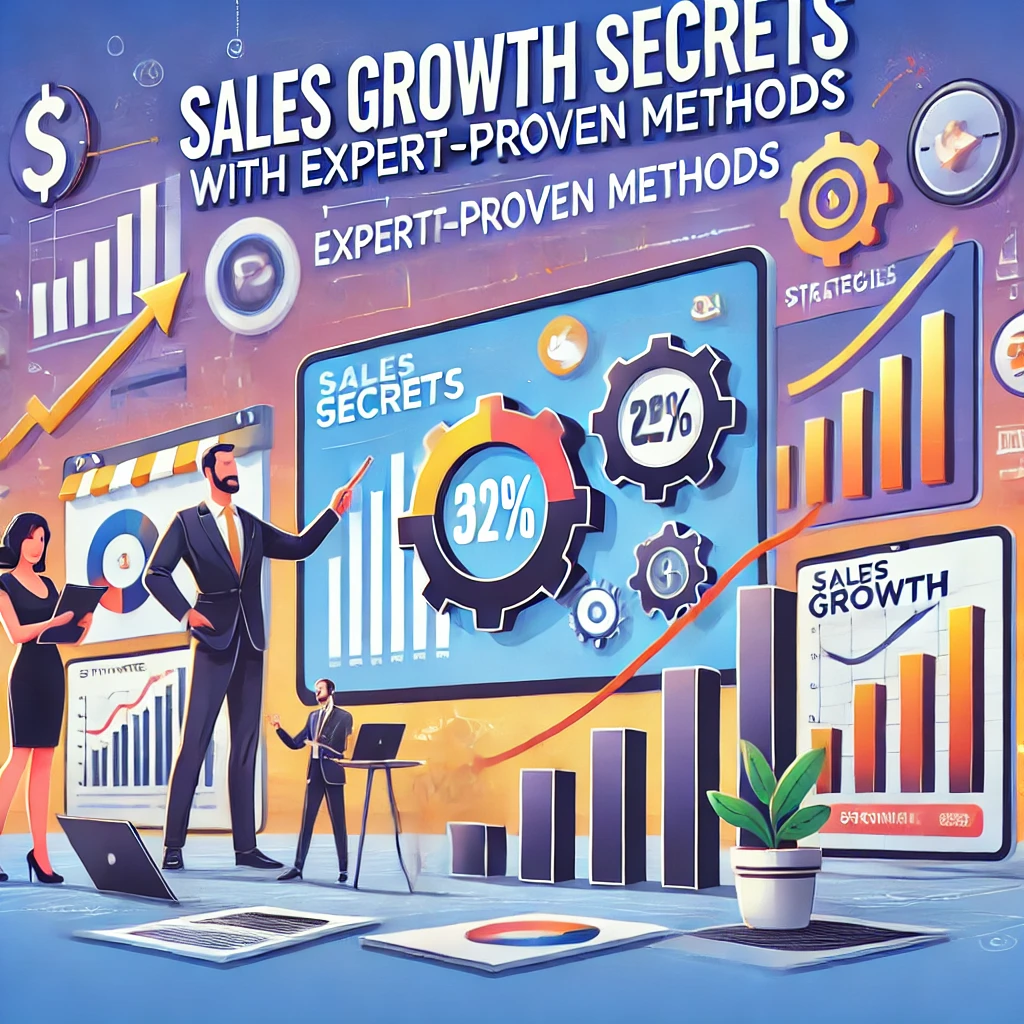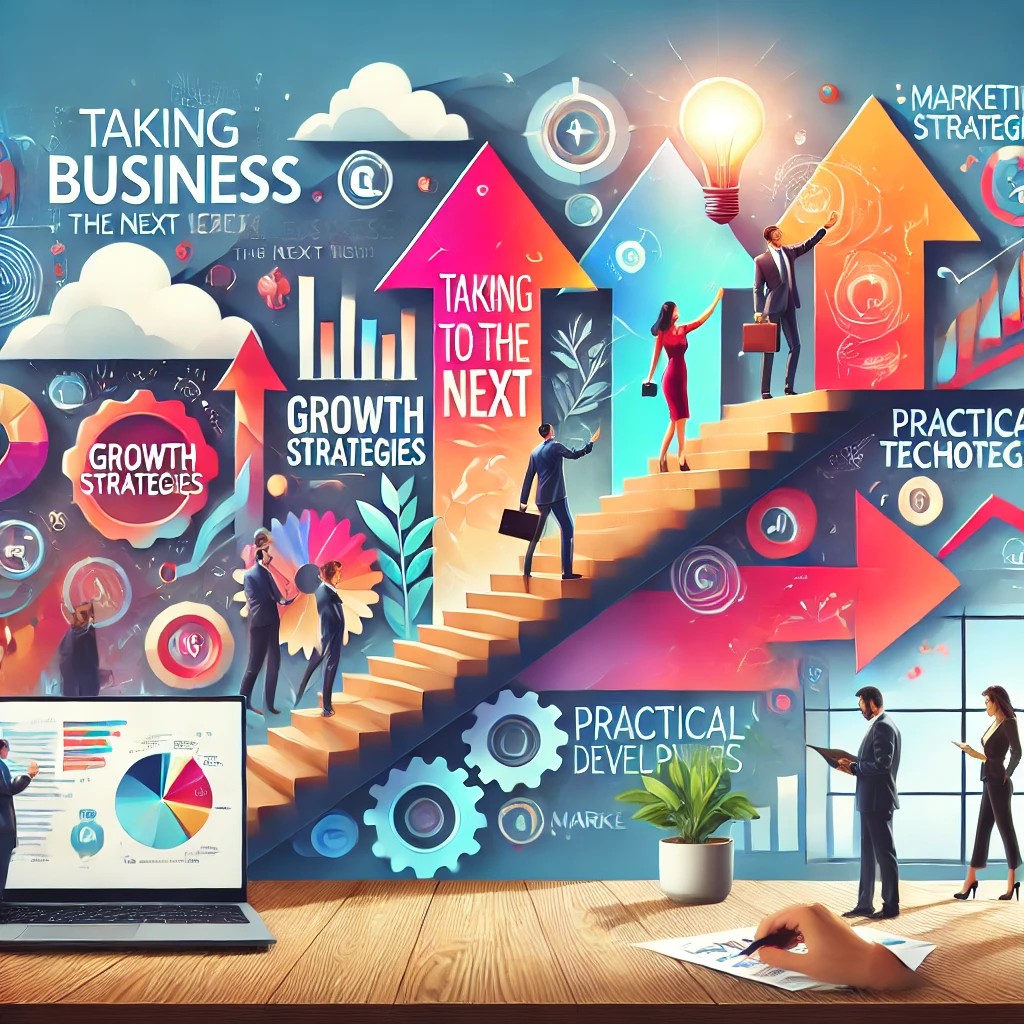Understanding the Sales Growth Landscape
The sales growth landscape has undergone significant transformation in recent years, driven by technological advancements and shifting consumer behaviors. Across various industries, businesses are increasingly leveraging digital tools and strategies to enhance their sales performance. The ongoing digital transformation has not only changed how companies engage with customers but has also necessitated the adaptation of traditional sales approaches to meet the evolving market demands. This transition highlights the urgency for organizations to embrace innovative sales strategies that incorporate digital channels.
Key performance indicators (KPIs) are essential for measuring sales success and provide valuable insights into the effectiveness of sales strategies. Common KPIs include sales growth rate, conversion rates, customer acquisition costs, and customer lifetime value. These metrics allow businesses to assess their performance, identify areas for improvement, and establish benchmarks against industry standards. By monitoring these indicators, organizations can make informed decisions to optimize their sales processes and ultimately drive growth.
Despite the potential for growth in the sales landscape, businesses face several challenges on their quest for sustainable sales expansion. Among these challenges are increased competition, changing consumer expectations, and the need for personalized customer engagement. Additionally, many organizations struggle to effectively integrate sales and marketing efforts, which can hinder their ability to achieve measurable outcomes. Addressing these obstacles requires a comprehensive understanding of best practices in sales management, as well as a commitment to continuous improvement and adaptation in a dynamic market environment.
In conclusion, recognizing the current trends and challenges in the sales growth landscape is critical for organizations aiming to sustain and enhance their success. By understanding the role of digital transformation and establishing robust KPIs, companies can position themselves to navigate the complexities of today’s sales environment effectively.
Expert Strategies for Maximizing Sales Potential
Sales growth is a critical objective for any organization, and leveraging expert strategies is essential for achieving this goal. One of the foremost methods employed by sales experts is targeted lead generation. This approach involves identifying and focusing on specific demographics that are most likely to convert into customers. By utilizing data analytics and market research, businesses can pinpoint their ideal leads and direct their marketing efforts accordingly. This ensures that resources are allocated efficiently, ultimately driving higher conversion rates.
Another pivotal strategy is effective customer segmentation. Understanding that not all customers have the same needs or preferences enables organizations to tailor their offerings more precisely. By segmenting customers based on characteristics such as purchasing behavior, demographics, or engagement level, businesses can create more personalized experiences. Such tailored communication fosters stronger connections with potential customers, significantly increasing the likelihood of sales. For instance, a software company could segment its audience by company size and customize its messaging to address the unique pain points faced by startups versus established enterprises.
Moreover, personalized marketing efforts play an integral role in maximizing sales potential. By addressing customers by name and providing recommendations based on their previous interactions, companies can create a more engaging experience. Utilizing marketing automation tools can streamline this process, making it easier to send personalized emails, offers, and content that resonate with individual recipients. A notable example is a well-known e-commerce platform that uses browsing history to suggest products, resulting in a substantial uptick in average order value and customer satisfaction.
Implementing these expert strategies can lead to measurable improvements in sales performance. By focusing on targeted lead generation, effective customer segmentation, and personalized marketing, businesses can establish a competitive advantage in today’s market, aligning their strategies with best practices that yield results.
Embracing Technology for Sales Enhancement
In today’s rapidly evolving business landscape, embracing technology is vital for accelerating sales growth. Tools such as Customer Relationship Management (CRM) systems play a crucial role in enhancing sales processes. These systems enable businesses to manage customer interactions effectively, streamline sales workflows, and maintain valuable data about customer preferences and behaviors. By centralizing this information, sales teams can develop more personalized approaches, which ultimately lead to improved customer engagement and satisfaction.
Data analytics also serves as an indispensable tool in the modern sales arsenal. With the ability to analyze large volumes of data, businesses can derive actionable insights that aid decision-making. By understanding market trends, customer behaviors, and sales performance through analytical tools, organizations can identify opportunities for improvement and adapt their strategies accordingly. This informed approach allows sales teams to focus their efforts on high-value prospects while optimizing their sales funnel.
Moreover, automation software has transformed how sales teams operate, creating efficient processes that significantly enhance productivity. Automation tools can take over repetitive tasks such as scheduling, follow-up emails, and lead scoring, allowing sales professionals to devote more time to engaging with customers and closing deals. This increased efficiency not only improves individual performance but also contributes to overall team success, fostering a culture of high achievement.
By leveraging technology, businesses can streamline their sales processes, engage customers more effectively, and ultimately drive better sales performance. These advancements in tools and systems empower sales teams to make data-driven decisions, enhance their approaches, and adapt to the changing market landscape, all of which are crucial for sustained sales growth.
Measuring and Refining Your Sales Growth Strategy
To achieve sustainable sales growth, businesses must prioritize measuring and refining their sales strategies continuously. Analyzing sales data is essential, as it provides insights into overall performance, individual salesperson effectiveness, and customer preferences. Utilizing sales performance metrics such as conversion rates, average deal size, and sales cycle length can help identify areas that require improvement. By leveraging analytical tools, organizations can visualize trends and uncover actionable insights that can inform their sales strategy.
Identifying patterns within your sales data is crucial for effective strategy refinement. Regularly reviewing sales reports helps differentiate between high-performing tactics and those that underperform. This analysis facilitates informed decisions on where to allocate resources and which approaches require modification. For instance, if a particular marketing channel yields significantly better results, businesses may consider investing more in that area while reassessing the effectiveness of less productive channels.
In a rapidly evolving market, responsiveness to feedback is vital. Gathering perspectives from sales representatives and customers can provide valuable information that complements data analysis. Engaging with your sales team about their experiences can reveal insights that numbers alone may not show. Similarly, soliciting feedback from clients helps businesses understand their needs and expectations, allowing for necessary adjustments in product offerings or sales tactics.
Ongoing training and development of sales teams should also be part of a dynamic sales growth strategy. Implementing regular training sessions focusing on skill enhancement, product knowledge, and market trends ensures that sales representatives remain informed and equipped to meet customer demands. By fostering a culture of continuous learning, organizations increase their teams’ adaptability and effectiveness in implementing refined strategies.
Through diligent measurement, pattern recognition, and responsive adjustments, businesses can create a robust framework that drives continuous sales growth while adapting to the changing landscape of their respective markets.


